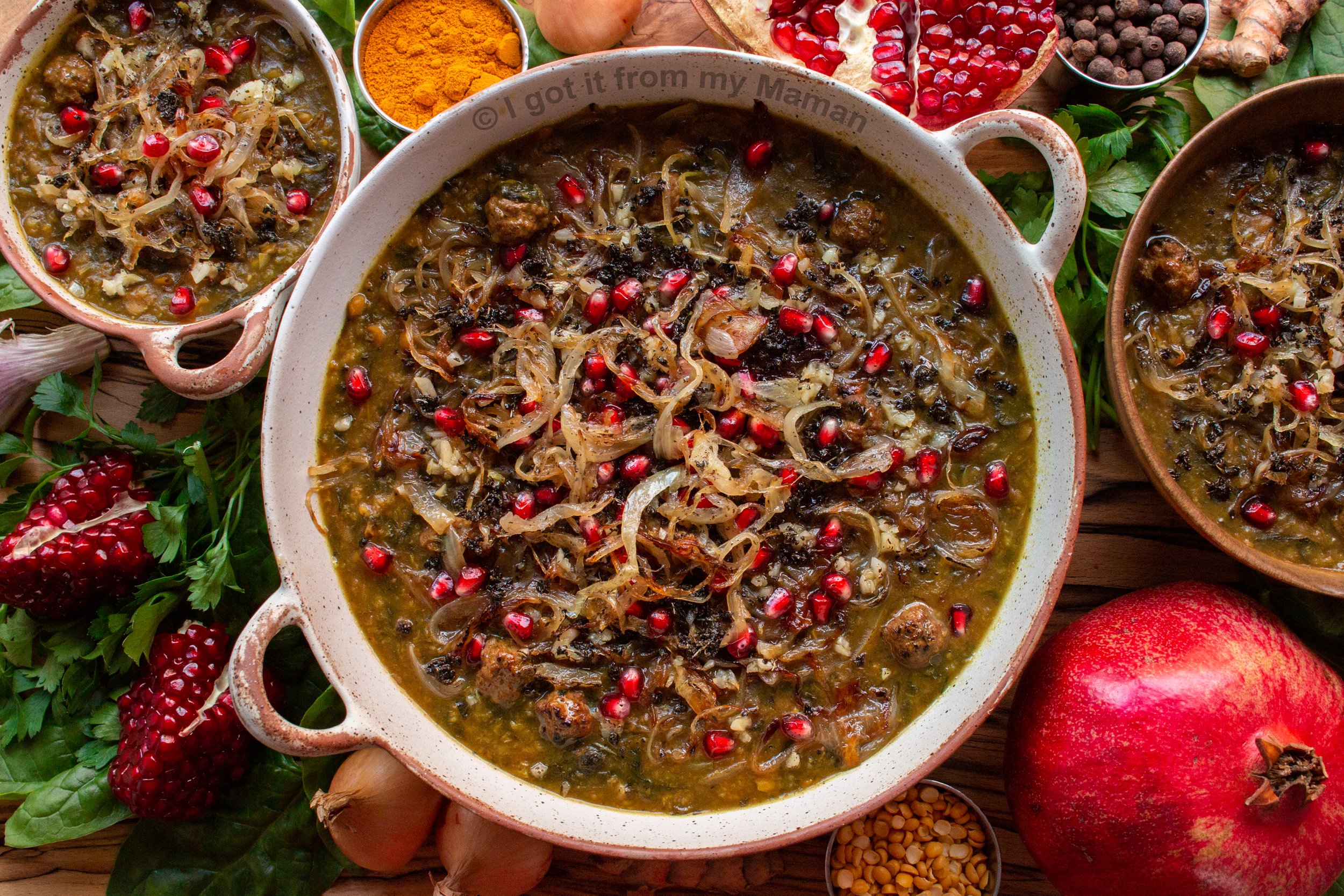
Ash-e Anar - Persian Pomegranate and Herb Pottage
It’s time for another ash recipe, this time Ash Anar. This Persian pomegranate and herb pottage is so comforting during the colder months. As I explained in my Ash-e Reshteh recipe, the closest English word to aash I can think of is ‘pottage’ (a thick soup of vegetables and often meat). Aash however has an additional criteria: It always involves fresh herbs. Since this particular one is Ash-e Anar, it also involves pomegranates, so if you like the fruity, sour taste of this gorgeous fruit, this ash recipe is for you!
Aash Anaar is the perfect dish to make on Yalda night, the winter solstice, that Persians celebrate since ancient times.

Doymaj - Feta, Herb and Walnut Bites
Dooymaj is a delicious, fresh snack for the warmer seasons of the year. It makes for the perfect finger food for parties or an afternoon nibble for your family. It’s very popular in north-western provinces of Iran, like Qazvin, Zanjan, East Azerbaijan and Hamedan. Each region has their recipe for these tasty bites. The common ingredients in all of them are Lavash, which is a very thin and crispy bread, Feta, fresh herbs and walnuts.
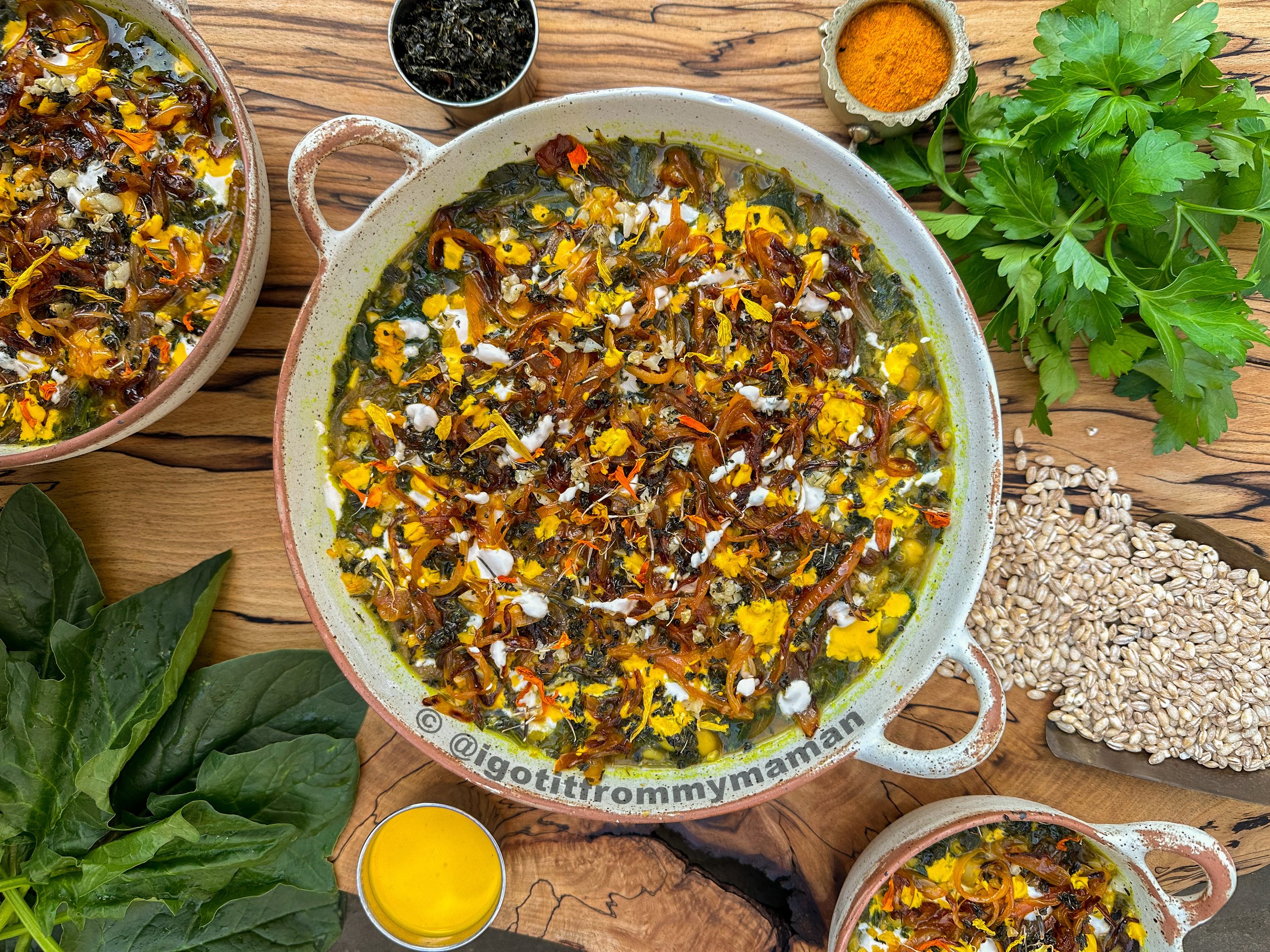
Ash-e Jo - Persian Barley, Herb and Bean Pottage
Outdoor temperatures have dropped significantly and so it’s time I share a new Aash Recipe with you. Beside Ash-e Reshteh, Ash-e Jo is another much loved pottage with herbs and beans. Another key ingredient in this ash is barley. If you are new to Persian cuisine, you may wonder what the difference between Ash-e Jo (Barley Pottage) and Soup-e Jo (Barley Soup) is. Apart from ash having a thicker consistency, it always features herbs and beans as key ingredients.
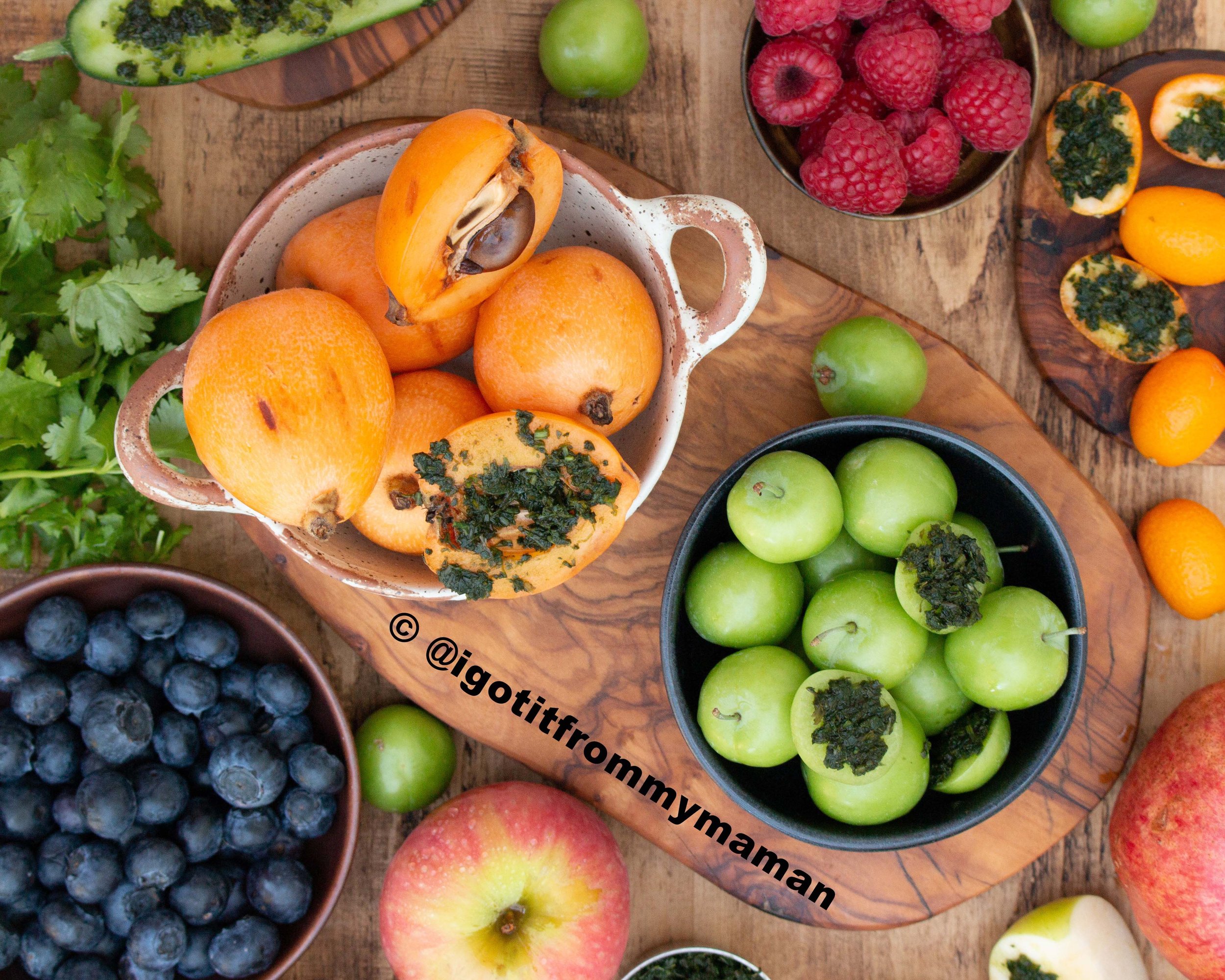
Dalaar - Persian Green Salt
Dalaar is a salty Persian herbal paste, that’s often referred to as green salt. It comes from northern Iran and serves as a seasoning for different fruits, such as oranges, cucumbers and goje sabz (greengage). Since goje sabz season has begun, I thought it’s the perfect time to share my Dalaar recipe with you. It contains lots of salt, so that it can be stored in the fridge for quite a long time. I don’t know how long exactly, because it never lasts longer than 2 days. :D
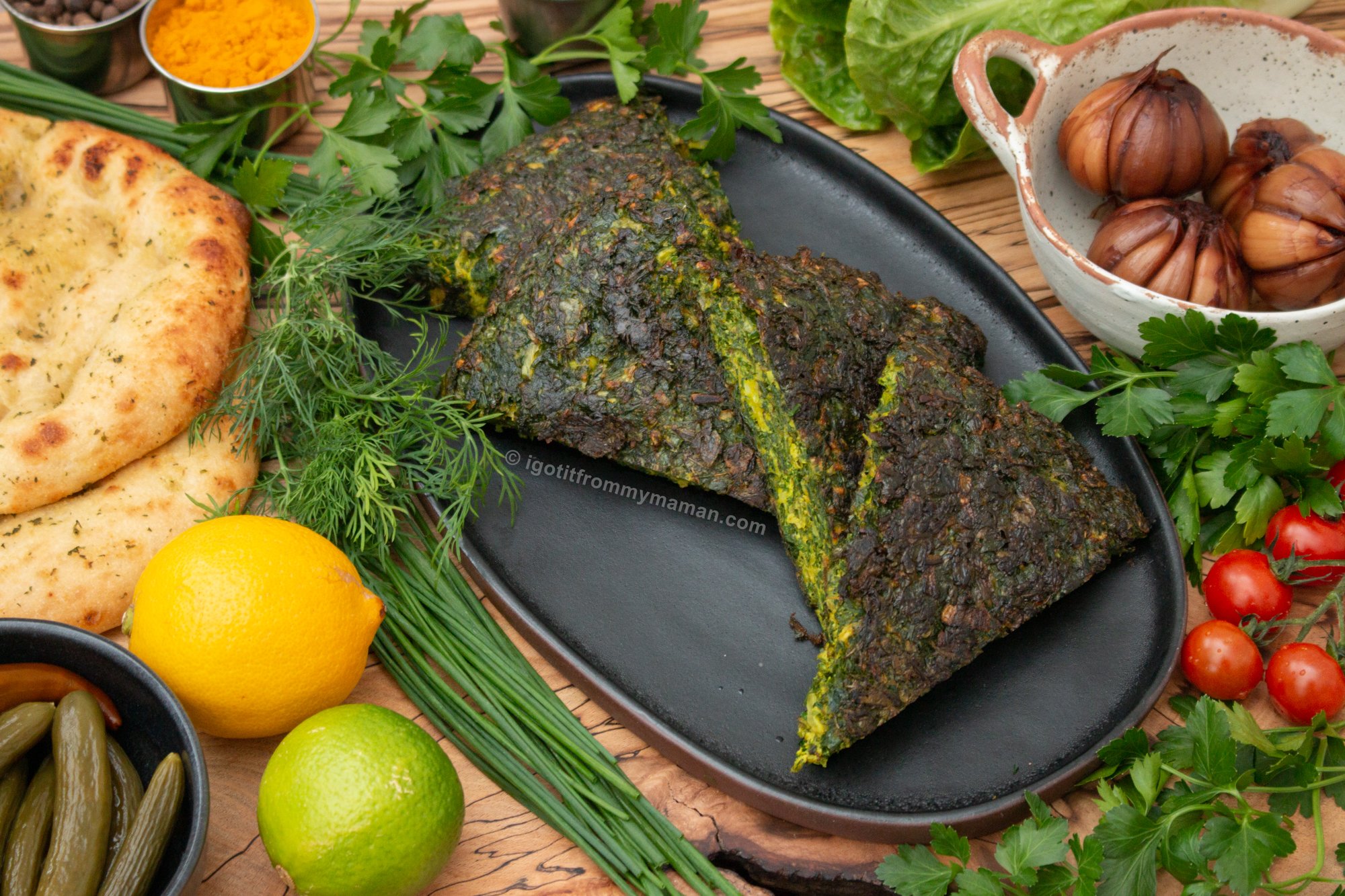
Kookoo Sabzi - Persian Herb Frittata
Kookoo Sabzi could be described as a Persian Herb Frittata. It’s quick and easy to prepare and makes for a delicious side dish or Persian sandwich ingredient. Kookoo Sabzi and Sabzi Polo ba Maahi are a match made in heaven!
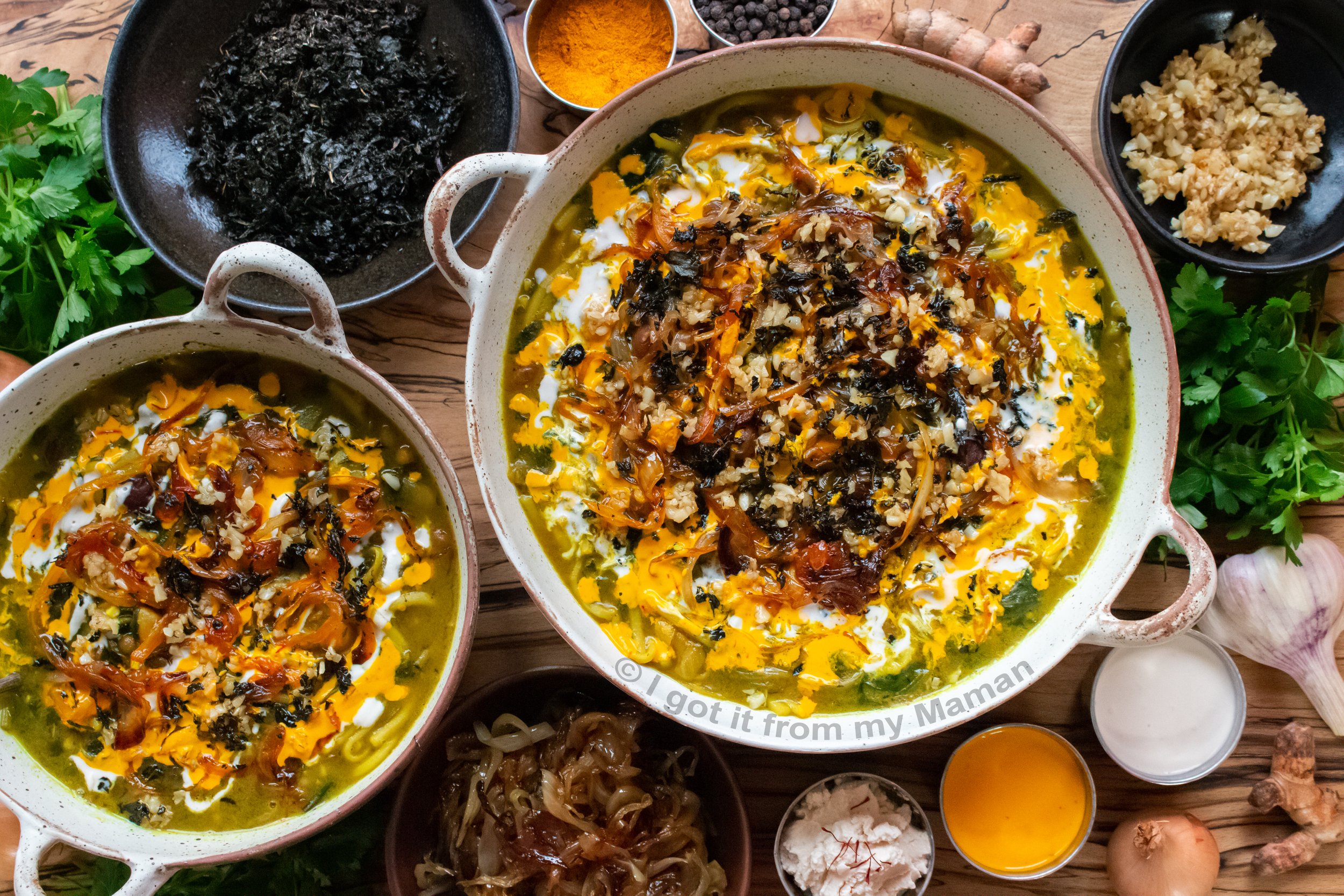
Ash-e Reshteh - Persian Noodle, Herb and Bean Pottage
There are many types of aash. Ash-e Reshteh is probably the most popular one. This thick soup is flavour packed with herbs, spinach, beans, lentils, onions, and other goodies. Reshteh refers to the noodles that are used for Ash-e Reshteh. You can find them in Middle Eastern shops or online. Make sure to buy the ones for ash, not for polo.